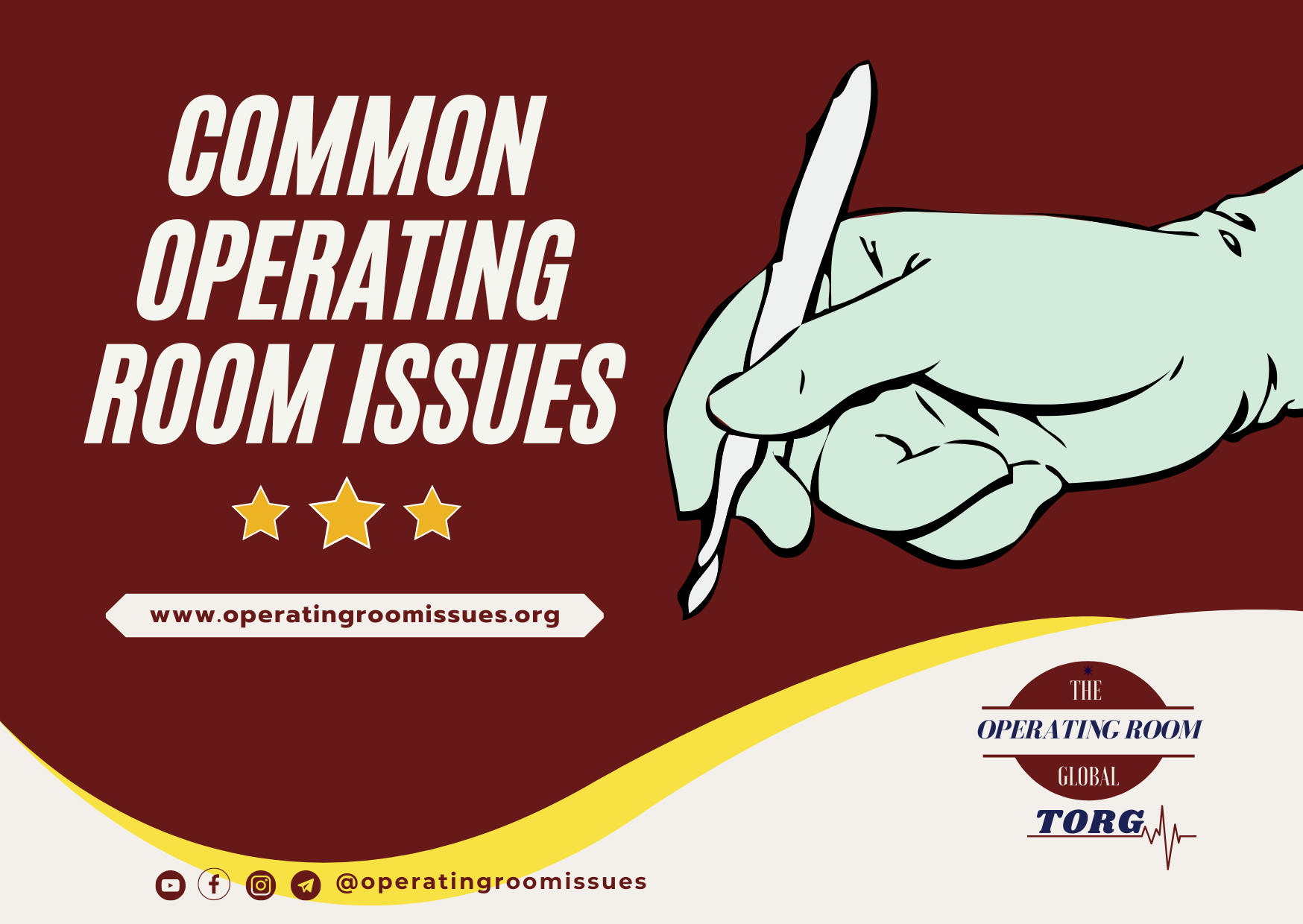By Adebusola Owokole (TORG Founder/President)
Operating rooms (ORs) are critical spaces where complex surgical procedures are performed. These spaces are designed to provide a sterile environment that ensures the safety and well-being of patients, healthcare workers, and surgeons. However, despite the best efforts of healthcare providers, operating rooms are not immune to issues that can impact patient outcomes. In this blog post, we will discuss some common operating room issues and the steps that healthcare providers can take to mitigate them.
- Equipment Failure: Equipment failure is one of the most common issues that can occur in the operating room. This can include power outages, malfunctioning equipment, and inadequate supplies. Equipment failure can lead to delays in surgeries and can compromise patient safety. To mitigate this issue, healthcare providers should ensure that all equipment is regularly inspected and maintained. In addition, backup power supplies and extra equipment should be readily available in case of emergency.
- Communication Issues: Effective communication is critical in the operating room. Surgeons, anesthesiologists, and nurses must communicate effectively to ensure that the patient’s needs are met, and the procedure is successful. Miscommunication can lead to surgical errors, delays, and patient harm. To mitigate communication issues, healthcare providers should implement standardized communication protocols, establish clear roles and responsibilities, and provide regular training for OR staff.
- Infection Control: Infection control is crucial in the operating room to prevent the spread of pathogens and minimize the risk of surgical site infections. Healthcare providers should ensure that all staff members adhere to strict infection control protocols, including hand hygiene, proper gowning and gloving, and proper use of personal protective equipment. Additionally, ORs should be regularly cleaned and disinfected to prevent the spread of bacteria and viruses.
- Staffing Shortages: Staffing shortages can lead to increased stress and fatigue among OR staff, which can impact patient outcomes. To mitigate staffing shortages, healthcare providers should prioritize staff retention and provide opportunities for professional development. In addition, healthcare providers should consider implementing flexible scheduling and workload management strategies to minimize staff burnout.
- Noise and Distractions: Noise and distractions in the operating room can impact patient outcomes by compromising the ability of healthcare providers to communicate effectively and concentrate on the task at hand. To mitigate this issue, healthcare providers should implement noise-reducing measures, such as using sound-absorbing materials and minimizing unnecessary chatter. In addition, healthcare providers should enforce strict protocols regarding the use of electronic devices in the OR.
In conclusion, the operating room is a complex environment where patient outcomes can be impacted by various issues. Healthcare providers must work together to mitigate these issues and ensure the safety and well-being of patients. By implementing strict protocols and providing regular training and support for OR staff, healthcare providers can minimize the risk of equipment failure, communication issues, infection control, staffing shortages, noise and distractions.

